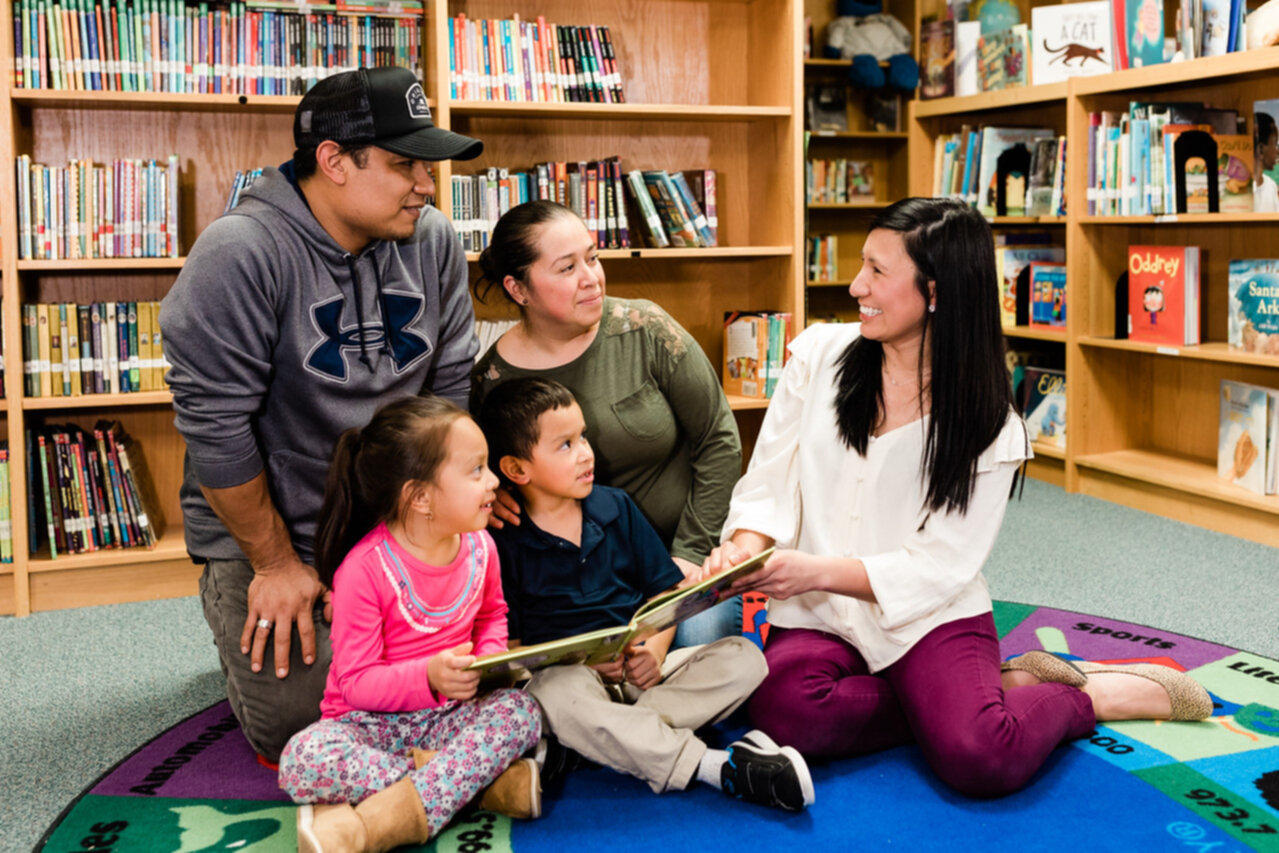Rural schools have their own unique challenges, very different than urban or suburban schools. For the Hispanic children in these schools, the daily life issues facing them include poverty, travel distance, housing, and fear. One in four babies born in the U.S. is Hispanic and, more than ever, they are being born into immigrant families who live in rural America, … Read More
Parents and Language Development
It is undeniable that poverty leads to disparities in reading and language development. Research has consistently demonstrated that poverty levels are associated with a decrease in phonological awareness, vocabulary, and syntax throughout the various stages of child development. But what causes those disparities, and how can we as teachers help to support change in the areas of reading and language … Read More
Parent/Teacher Conferences with ELL Parents
Parent/teacher conferences are crucial for helping students to succeed and grow in their academic journeys. Holding parent/teacher conferences can be rewarding for kids who are succeeding in school and it’s a great time to review their successes. This good progress is something all parents want and need to hear! But parent/teacher conferences can also prove to be significantly challenging for teachers, … Read More
Federal Education Programs Summary
This piece features several major programs from the Elementary & Secondary Education Act (ESEA), as well as the McKinney-Vento Homeless Assistance Act (Title VII-B Education for Homeless Children and Youth) and IDEA (Special Education). We will give a snapshot of each, which includes funding and purpose. Funding amounts listed are the most currently available from the U.S. Department of Education … Read More
Parents are Untapped Resources for Emergent Bilingual Students
Emergent bilingual students are students who are developing skills in their native language while learning a new, second language. Additionally, this term is used in place of terms such as Limited English Proficient (LEP), English Language Learners (ELLs), and English as a Second Language (ESL) students, which don’t accurately describe this student population. Emergent bilinguals are on their way to … Read More
The Latest Research on Latinos and College
College attainment among Latinos has rapidly changed in recent years, which coincides with the increasing number of Latinos in the public school and college systems. Furthermore, the Latino high school dropout rate has significantly declined and enrollment in college has increased. Read on to learn about some of the latest research on Latinos and college. 1) High School Dropout Rate … Read More
Empowering ELL Parents with Academic Vocabulary
Parents play a leading role in the educational endeavors of their children. For that reason, parental involvement is crucial in the academic success of their children. However, oftentimes, immigrant and English Language Learner (ELL) parents don’t have the proper knowledge or academic vocabulary to help their children succeed in school. School districts and teachers should work together by creating seminars … Read More
3 Tips for Promoting Dual Language Learning with Parents and Kids
Dual language learning involves the instruction of content and literacy in two distinct languages. The English and Spanish combination is the most predominant type of dual language learning in the United States. Dual language learning helps English Language Learners (ELLs) foster strong literacy skills and English language skills over an extended period of time. Likewise, dual language learning helps ELLs … Read More
Current Literacy Rates in America
The United States is currently facing a literacy dilemma. This critical state of literacy in America isn’t new, but it majorly impacts our children, our society, and our economy. Despite that comprehensive national literacy studies are not conducted on a yearly basis, the National Commission of Adult Literacy releases occasional reports such as the report from June 2018, which pinpoints … Read More
Newcomer / ESL Support
Throughout the history of our country, people have immigrated to the United States (U.S.) from around the globe seeking a new, better life. With them, immigrants have brought their cultures, customs, and languages. Said immigrants are known as “newcomers.” This term refers to any foreign-born student and their families who have recently come into the United States. Newcomers have a … Read More

